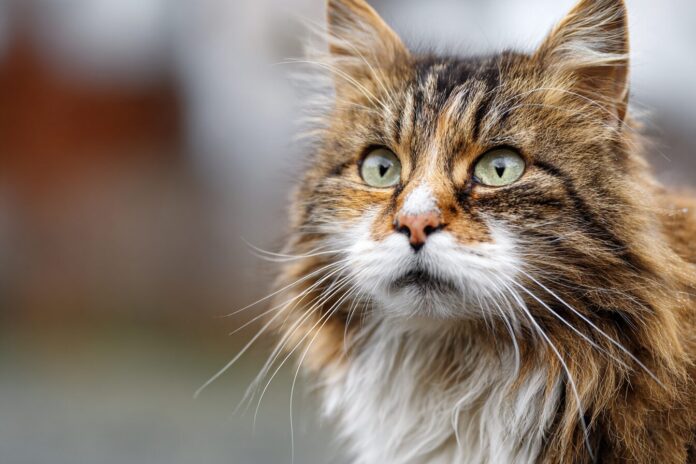Unlocking Alzheimer’s Mysteries Through Feline Science
Most importantly, groundbreaking research suggests that elderly cats with dementia exhibit striking brain changes similar to those found in humans with Alzheimer’s disease. Because these natural parallels are undeniable, researchers are embracing the opportunity to study these animals in order to unlock long-sought answers about cognitive decline. This area of study not only deepens our understanding but also accelerates the development of novel treatment strategies for both veterinary and human medicine.
In addition, as scientists explore these similarities, they are discovering that cats naturally develop the toxic amyloid-beta protein and experience loss of synapses—a phenomenon that directly correlates with memory loss and confusion in Alzheimer’s patients. Therefore, the investigation of feline cognitive dysfunction offers a unique and practical model, steering research towards therapies that could be directly applicable to human conditions. Besides that, this research is underpinned by robust findings from institutions around the world, such as the detailed reports from the University of Edinburgh and corroborative studies highlighted by Economic Times.
Natural Models: Why Cats Provide Unique Insights
Traditionally, Alzheimer’s research has relied on mouse models, which unfortunately do not naturally develop the disease. Most importantly, cats offer a perfect natural model for Alzheimer’s due to their spontaneous development of critical pathological features. As recent breakthroughs have revealed, the increase in amyloid-beta buildup and the loss of neural connections in cats closely mimic the human condition.
Because these animals display symptoms naturally without genetic manipulation, the research findings are considered more applicable to real-world scenarios. This means that studying the natural progression of the disease in cats may provide invaluable insights into environmental and lifestyle factors that exacerbate cognitive decline. Besides that, this research offers practical benefits, such as the ability to test intervention strategies in a model that closely aligns with human pathology, as noted in a study by Vet Times.
Observable Symptoms and Their Impact on Research
Besides that, the visible symptoms of feline dementia are remarkably similar to those observed in human Alzheimer’s. Elderly cats may exhibit increased vocalization, disrupted sleep patterns, and episodes of confusion and disorientation. These clinical signs help pet owners and veterinarians alike to recognize early cognitive issues, thereby prompting earlier intervention. Because these patterns of behavior are analogous to human symptoms, the shared characteristics enable a deeper, more comprehensive investigative approach.
Furthermore, several studies, including those detailed on ScienceDaily, highlight that these behavioral changes are accompanied by measurable structural brain changes. This dual evidence—behavioral symptoms combined with imaging studies—supports the hypothesis that cats can serve as an accessible and effective model for studying Alzheimer’s progression.
Reshaping Alzheimer’s Research with Feline Studies
Because feline dementia occurs naturally, research can proceed without the complications of artificial genetic modifications. This means that the progression of the disease is observed in its natural environment, providing researchers with a more authentic understanding of cognitive decline. In this context, studies have been able to observe real-time neural degeneration and synaptic loss, which are essential markers for cognitive impairment.
Most importantly, such studies have paved the way for developing novel therapeutic strategies. For instance, understanding the role of synaptic pruning—a process that normally aids in early brain development but later contributes to cognitive decline—enables the creation of targeted drugs aimed at preserving synaptic health. Therefore, as described by recent research updates on University of Edinburgh’s website, interventions designed with insights from feline studies could shorten research cycles and reduce treatment costs in human Alzheimer’s care.
Integrating Compassionate Care and Clinical Insight
Because managing cognitive decline in cats is both a humane and scientific challenge, experts recommend a multifaceted approach to care. Veterinary professionals emphasize establishing a predictable routine, designing safe and accessible living environments, and scheduling regular check-ups to monitor cognitive health. These strategies are crucial because they not only improve the quality of life for elderly cats but also provide a blueprint for human care practices.
Most importantly, such integrative care models show promise in guiding holistic strategies that benefit both cats and their human counterparts. Innovations driven by veterinary insights could one day lead to dual-purpose treatments that serve both animals and humans, emphasizing the interconnectedness of health across species.
Looking Ahead: One Health, One Hope
In conclusion, exploring feline dementia provides a valuable window into understanding Alzheimer’s disease. Because elderly cats naturally demonstrate the same neuropathological hallmarks as humans, they are emerging as critical catalysts in neurodegenerative research. With ongoing studies and cross-disciplinary collaboration, the potential for developing transformative treatments is greater than ever.
Therefore, as researchers continue to bridge the gap between veterinary and human medicine, the future holds a promise where breakthroughs in one field benefit the other. For further reading on this exciting development, please visit authoritative sources such as University of Edinburgh and ScienceDaily.
References
- Cats with dementia share hallmarks of Alzheimer’s | University of Edinburgh
- Cats with dementia could hold the key to treating Alzheimer’s in human beings | Economic Times
- How cats with dementia could help crack the Alzheimer’s puzzle | ScienceDaily
- Cats develop dementia like humans – and may hold clues to Alzheimer’s breakthrough | The Independent
- Study reveals striking similarities between feline dementia and Alzheimer’s disease | Vet Times



